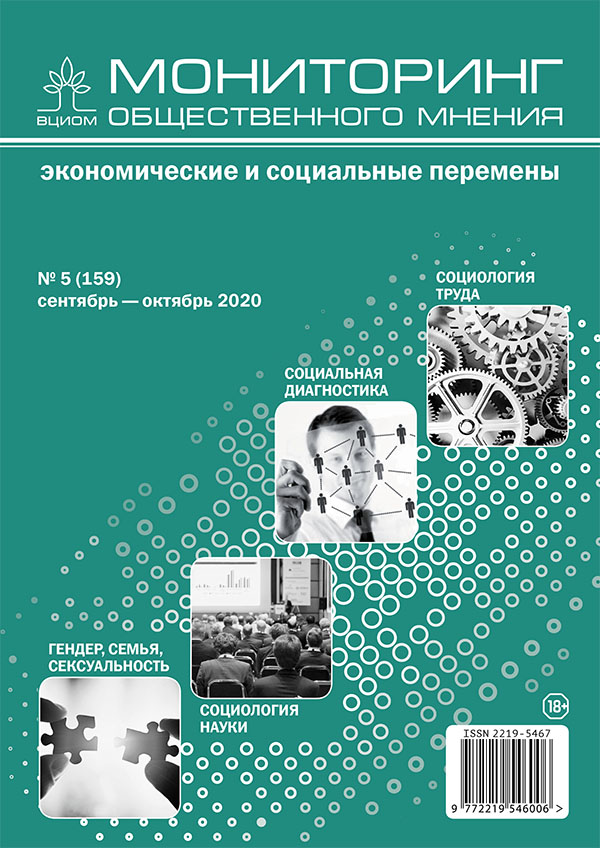Intergroup Differences in Attitudes Towards People with ASD (Autism Spectrum Disorder)
DOI:
https://doi.org/10.14515/monitoring.2020.5.1579Keywords:
Autism, Autism Spectrum Disorder(ASD), Social attitudes, Russia, mental disorders, sociology of inclusionAbstract
The study is focused on the attitudes towards people diagnosed with an autism spectrum disorder (ASD) and the assessment of differences in public attitudes depending on individual’s social and demographic characteristics and engagement with this topic. The study is based on the data of a quantitative online survey with a sample of 1,297 respondents from communities concerned with the ASD (psychology, evidence-based medicine, parenthood and child rearing). The following five types of attitudes were identified using cluster analysis: (1) ‘interest and compassion’, (2) ‘help without compassion’, (3) ‘neutrality’, (4) ‘compassionate rejection’, (5) ‘aggression and rejection’. Regression analysis shows that positive attitudes are typical of women and statistically related to having children, relatively high financial self-assessment, manifestation of personal interest in the ASD topic and having family members with ASD. Respondents who do not have anyone with ASD in their immediate circle, those who only have an experience of observing but not directly communicating with them are more likely to have aggressive attitudes.
Acknowledgements. The study has been funded by the Russian Academic Excellence Project '5-100'.
Downloads
Published
How to Cite
Issue
Section
License
Copyright (c) 2020 Monitoring of Public Opinion: Economic and Social Changes Journal (Public Opinion Monitoring) ISSN 2219-5467

This work is licensed under a Creative Commons Attribution-NonCommercial-ShareAlike 4.0 International License.






